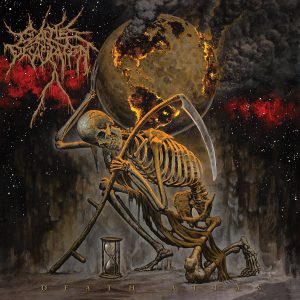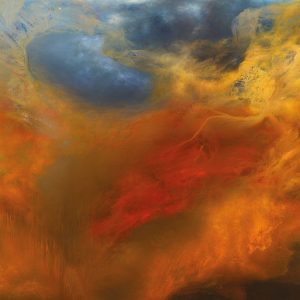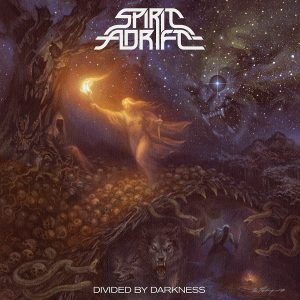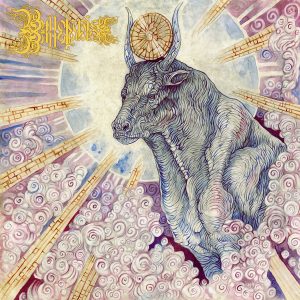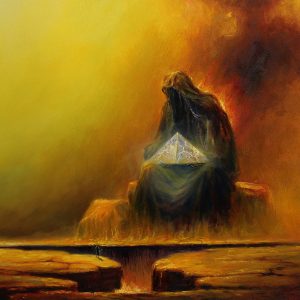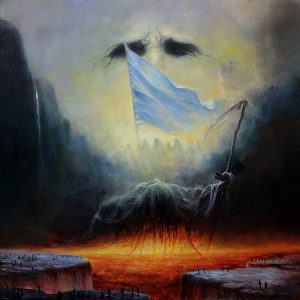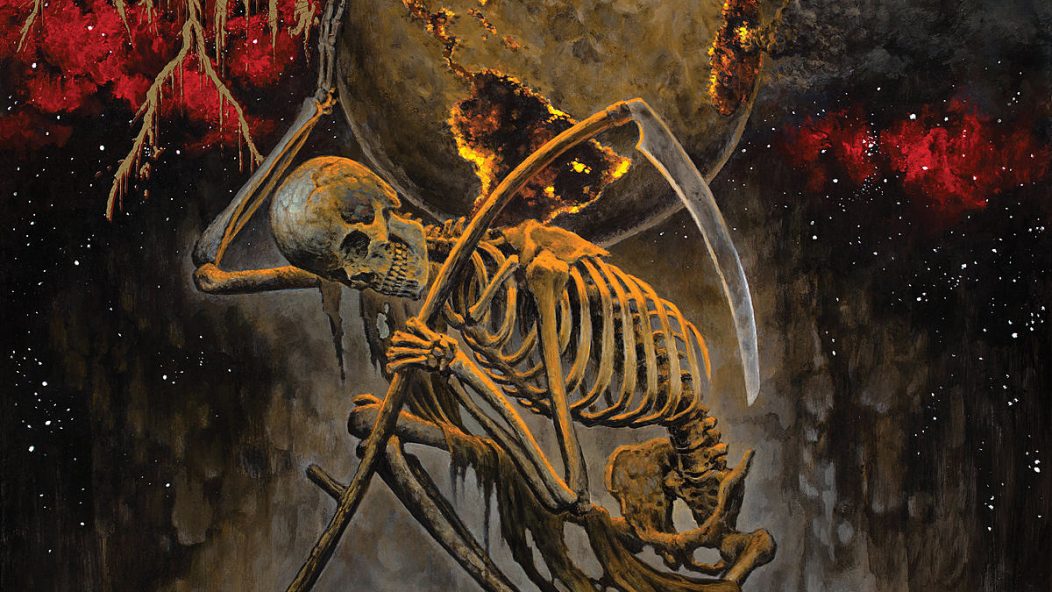
Langdon Hickman's Top Albums of 2019
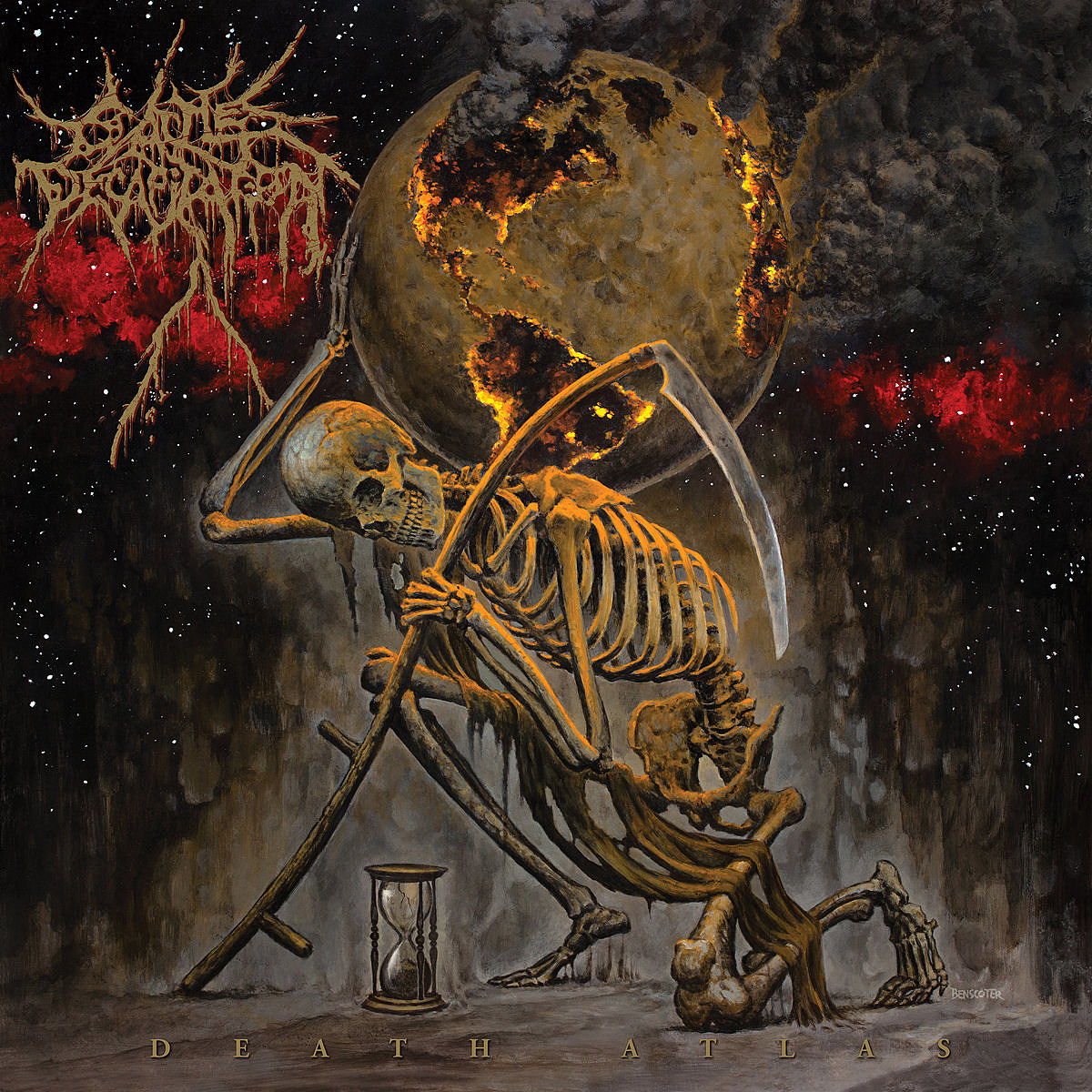
…
It turns out despite writing about music for a number of years now, I am still quite ill-prepared for these types of lists. They tend to induce severe anxiety in me, sometimes cresting into panic attacks (more on that on my best of the decade list, where it becomes more pressingly relevant). My issue is that while it’s easy to toss one of these off flippantly, that ignores the handful of things that make them important.
On a purely personal level, these types of lists don’t just serve to mark the best albums of the year but also create in summa a snapshot of the emotional state of a year. It’s pretty well agreed upon that there are always more than ten great albums a year, and I can personally speak to having long lists that crest over 100 albums, sometimes by quite a bit. Some albums leap out immediately, but for the most part, it’s more a reflection on what work actually resonates, with a vast unspoken ghost of “why” lingering behind such albums that often goes unremarked, let alone answered. It’s easier for someone like me, who definitely overthinks these things, to produce a list every six months, every three months, every month, every week; except those aren’t easy either and often fill me with the same kind of paralysis. The experience of submitting the perfect list one day and discovering one of your favorite albums in the world from the year in question the day after is terrifyingly common, and the way that messes with lists fucks me up in my head.
Lists also serve as a snapshot of the year to look back on in years to come, a brief summary not just of what was good or important (metrics that often generate embarrassingly many or embarrassingly few entries) but what marked itself as important to you. “Important” is a bit heavier than “favorite” because it gestures to something other than itself, is wrapped up in the contours of anxiety and pleasure that mark a life, which many writers about art fail to disclose even though they really quite should. And so, for someone who overthinks things, the idea of the ideal snapshot, the best and most accurate one, is important; it’s not just for you but for me, generating something I can comfortably look back on to understand myself, for better or for worse.
On a broader level, they’re often good in-roads for people either unfamiliar with a genre entirely or who have fallen out of listening to a genre and want a place to get started again. It’s not fair to people like that to be flippant, to include things out of a sense of obligation rather than love, to produce hyperbole in one place and guarded sentiments in another to protect the proper ranked status. It’s obviously not as big a responsibility as providing care to people in distress or trauma, as feeding people, as being a kind friend and partner, but it is at least a kind of responsibility and one worth taking at least somewhat seriously. I’d wager anyone reading a list like this now has read one in the past and so can personally speak to their use-in-hand as quick reference. So the burden in my head becomes not just to point you to records I think are fucking great but also ones that you might not otherwise be pointed toward. A common suggested article, no matter the site, is “Work We Missed,” specifically to catch the albums and novels and films that don’t get reviewed and don’t show up on lists. The most common reason to shooting that pitch down is that it’s an endless hunt, able to be carried out forever without completion.
And on a final element, these lists are important to artists as well. Believe it or not, most of the people who produce the art you love often receive very little sincere praise for their work unless they are in the very upper echelons of the art and culture world. This is also, by the way, the thing that should temper some writers regarding criticism of works, not to be untruthful but to think more deeply about how they word things; real people make art and those same people monitor quite closely how it is received and responses to it. And as much as we’d all love to be perfectly objective, the cold unfeeling machines of reason and philosophy, absolutely no one gets into art because they do not feel. We are fans of this stuff and, as a fan, you root for certain people and certain groups, feel thrilled when they succeed and harrowed when they don’t. Some think it’s scandalous that this element might effect someone’s list, but it isn’t, really. No one is moved by praise for a work you think is technically great but doesn’t move you, even though what constitutes moving you changes shape even between different records.
So where does that leave me for 2019? For one, this is mostly an unranked list. I’ve still included the numbering because there are moments, clouds of entries, where the ordering makes explicit sense, and the power of naming a specific album number one is not lost on me. But, again, there are substantially more than ten great albums that came out this year, and so pretending that the list I author today, now, won’t ever be changed by me in the private in the future is tremendously silly. The part of me that likes maps and compendiums and encyclopedias would love to just publish an unexpurgated long-list of records; no one would read something like that and I know it.
As for my tastes, this is almost entirely driven by whether an album made me have a good cry at some point. Not all of those weepy moments were ones of sorrow and not all of them were gut-wrenching weeping, but the common thread of moving me at least at some point to feel that trembling at the threshold and the teary dissolution of self, at least once, is mandatory. There are many, many great albums, and many albums not on this list that have that same kind of power for others, but these are the albums that do that for me.
And lastly, before we start, some minor notes. Slipknot’s new album was far and away the best mainstream metal record of the year and, despite not making it on this list, an incredible record. The same can be said of Korn’s latest, which is their best since Untouchables and shows an intense and powerful emotional core to the group’s work returning. Lastly, an auspicious missing entry here is the new record by Tool, which I personally loved but has some easily-Googled attendant questions and issues that make me feel more comfortable mentioning it here than in the list proper. (Granted bands of that size won’t be effected much at all by their presence or lack thereof on lists like this, if we’re being honest with ourselves.)
…
Honorable Mentions
Cult of Luna – A Dawn to Fear (Metal Blade, USA)
Tomb Mold – Planetary Clairvoyance (20 Buck Spin, USA)
Devin Townsend – Empath (Inside Out, Canada)
Dream Theater – Distance Over Time (Inside Out, USA)
Opeth – In Cauda Venenum (Moderbolaget/Nuclear Blast, Sweden)
Cloak – The Burning Dawn (Season of Mist, USA)
Schammasch – Hearts of No Light (Prosthetic Records, Switzerland)
Liturgy – H.A.Q.Q. (YLYLCYN, USA)
White Ward – Love Exchange Failure (Debemur Morti Productions, Ukraine)
Yellow Eyes – Rare Field Ceiling (Gilead Media, USA)
…
You’ll notice that a lot of these records are ones I’ve reviewed. This isn’t entirely incidental; I’d rather spend my time representing things I love to the best of my ability than slagging someone’s hard work unless I felt I had some really insightful or useful critiques to table. Cattle Decapitation’s latest is a good sign of that mentality, an album that does a little of every kind of extreme metal and does them well. I’m not much of a singles listener, skewing much, much harder toward album-oriented listening, but this was one instance where I had the title track on repeat as soon as it dropped for days. I logged something like 40 listens to it on Spotify before the album dropped. I can’t be more eloquent than this: I love this record. The title track is perfect heavy metal.
Bonus: Read my review of Death Atlas.
Hallucinogen captured about a full month of my life this year. I’m an enormous fan of the Pyramids album A Northern Meadow, one which Blut aus Nord project head Vindsval was involved with, and the seeming influence of that incredible avant-garde record here makes it hard for me to resist. And the beauty of Blut Aus Nord is despite the success and warm greeting of this record, there’s no telling whether the next album will be raw black metal, industrial, or some entirely new idea. What’s more, the project is carried out without pretentious sneering from the high seat about how high-minded or how underground they are, instead happily producing forward-thinking sonically adventurous progressive extreme metal.
Bonus: Read my review of Hallucinogen.
It feels almost more like a pitched fever-dream sci-fi film of the 1970s or 1980s rather than a record, all sleek mirror blacks and spiral infinities and windows pouring into more windows, forever. This is what prog is best at, something both Oranssi Pazuzu and Dark Buddha Rising on their own seem to have been discovering over the past decade. These collaborations between them, of which this is the second, are partly so special because of how radically they alter the two bands themselves. This might be a bit lower than Oranssi Pazuzu’s latest, which is one of the best of the decade, but I can’t help but to love something this wild and imaginative. More bands should shoot for the stars like this.
Bonus: Read my review of Syntheosis.
It almost feels gauche to put a Sunn O))) record on a best of the year list given their stature and the smaller bands that could be here instead, but I can’t deny either my play count or the amount of nights I’ve spent meditating to this record. Sunn O))) are curious because despite being arguably the sonically largest drone band ever, their music has a tremendous intimacy to it. Life Metal feels often less like a metal record and more like sitting cross-legged inside of a young star just after the big bang; there’s noise, sure, and it’s very loud, but the dominant emotion is the serene beauty of watching stars and planets assemble and life begin. This record is to doom what James Michener is to historical fiction or Tree of Life is to film, taking such a wide panoramic view of proceedings that it can’t help but induce a perfect stellar peace.
Bonus: Read my review of Life Metal.
I remember putting on the first Spirit Adrift full-length on the day of its release, and in a fit of pure joy, I posted one of the verses of its opening song in all-caps on Twitter. My love affair with Nate Garrett’s personal project has grown with the group. I never in a million years would have thought that other people would have loved this group as much as I have, let alone so many people, which only makes my feelings toward them more intense. It’s so satisfying to really root for a project and then see it break out the way Spirit Adrift has. This record improves on every small niggling issue I had with their second record and really underscores what Nate brought to the table in groups like Take Over and Destroy and Gatecreeper. Some people just get heavy metal and Nate’s one of them.
Bonus: Read Brian O’Neill’s interview with Nate Garrett.
As much as I like groups like Midnight, by and large I prefer my black metal projects to take themselves seriously. Art is drama, and while there are dramaturgical advantages to shlock and fun (who doesn’t love GWAR?), black metal tends to resonate best for me when there is a great theatrical push behind it. This is the genre-child of Mercyful Fate and Venom, after all. So the theological intensity of Bull of Apis Bull of Bronze, one that gestures to very subtle readings of obscure spiritual texts and eschews the easy and cheap Satanic gimmicks of some of their peers, appeals to me tremendously. That they point their spiritual ecstasy-inducing music toward antifascist ends is just another plus, a band that marries good politics to fucking great music. My time with this is intensely personal and meditative and what a wonderful psychopomp it makes.
I mentioned at the time of release that this album was my then-AOTY candidate. That it sank a few spots is only due to the quality of the rest of the year (as well as a labelmate’s strength showing to me over repeated listens and many treasured months). But the things I said in my review of Cairn still hold here. This record is not just musically enormous, fixated not on the grief of nihilism and faithlessness but of its massive and unlimited imaginative freeing capacity, but it also strikes a very real experience for me right in its heart. This may not surprise you, but my struggles with faith and faithlessness drove me first to theology and then to philosophy, so even the touchstones and the path he carves through them here are familiar to me. Oh, to not be alone in this.
I liked False’s untitled work and purchased each of those records as they were coming out, but I didn’t anticipate loving a False record before this. Three gargantuan tracks, each a dense programmatic suite of progressive black metal that knows when to get vicious and when to get grandiloquent, when to be starry-eyed and when to be animalistic. A recurring theme you might notice is a tendency toward progressive music, and my tendency toward the more progressive end of things is better justified by albums like this, where it’s a method of achieving a sense of richness and depth almost closer to a novel than a black metal record.
Bonus: Read my review of Portent.
It’s been a pleasant surprise to see this record rate so highly among so many. Big|Brave make noisy, rich, and emotionally harrowing post-metal, the kind that makes my skin crawl. While I was referring generally to music that makes me cry alone at my desk at night before, this is the album where that specific anecdote is drawn, a power it demonstrated it still had over me when relistening to it while reviewing this list. It’s also worth noting how many different types of people list this as one of their favorites. Take the hint: it’s incredible.
Bonus: Read my review of A Gaze Among Them
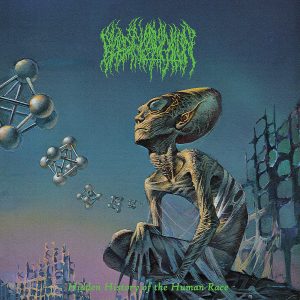
It is well-documented that I love death metal. It is my fervent belief that death metal is not just the best kind of heavy metal but the best kind of music. So it shouldn’t be a surprise to anyone that perhaps the most widely lauded death metal record of the year topped my list. I won’t belabor this point, given that I wrote a fairly sizable piece about what I appreciate about this record already, but it’s worth reiterating that the final two tracks of this record form a 20+ suite of music that is perhaps my favorite stretch of recorded sounds from this year.
Bonus: Read my review of Hidden History of the Human Race.
